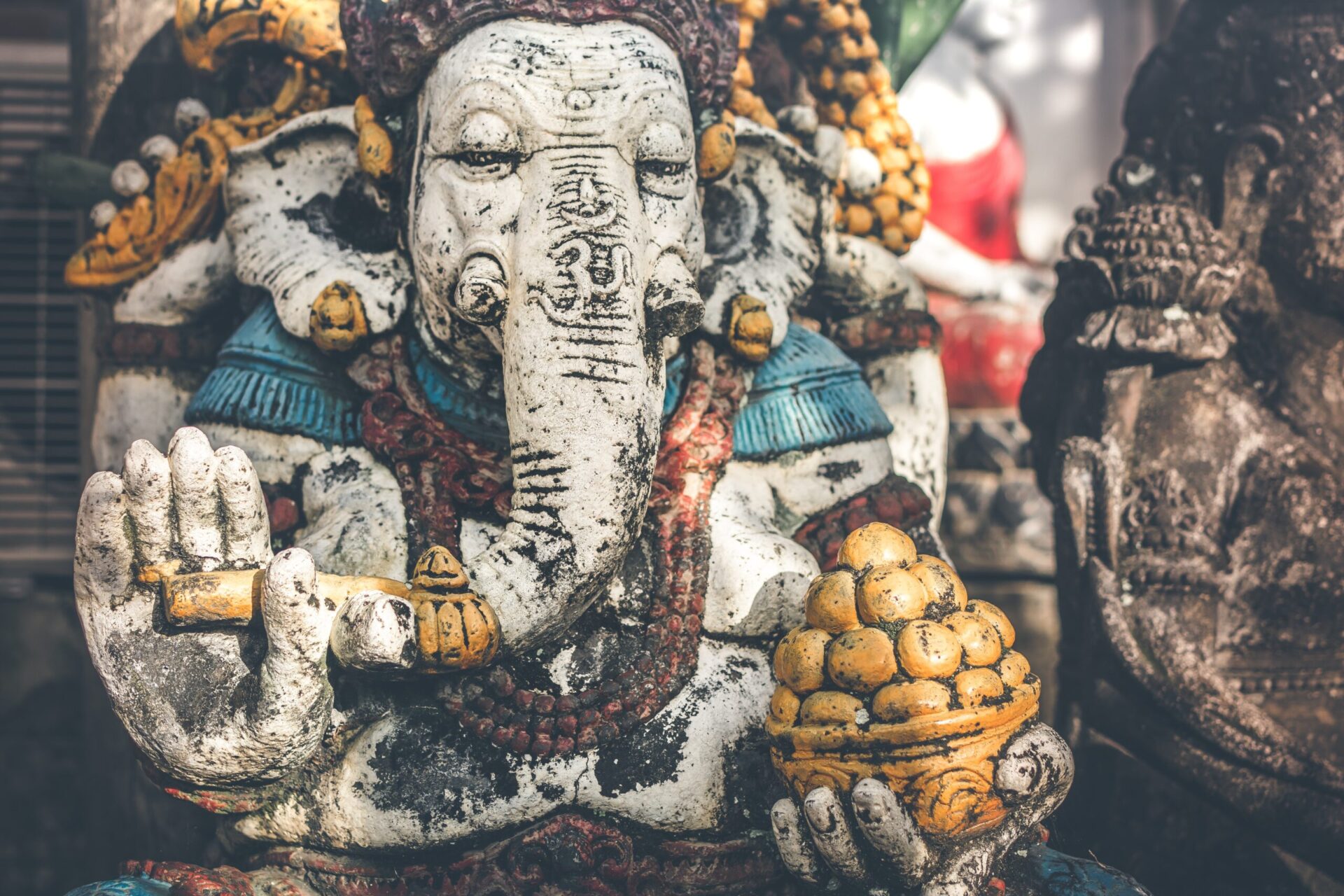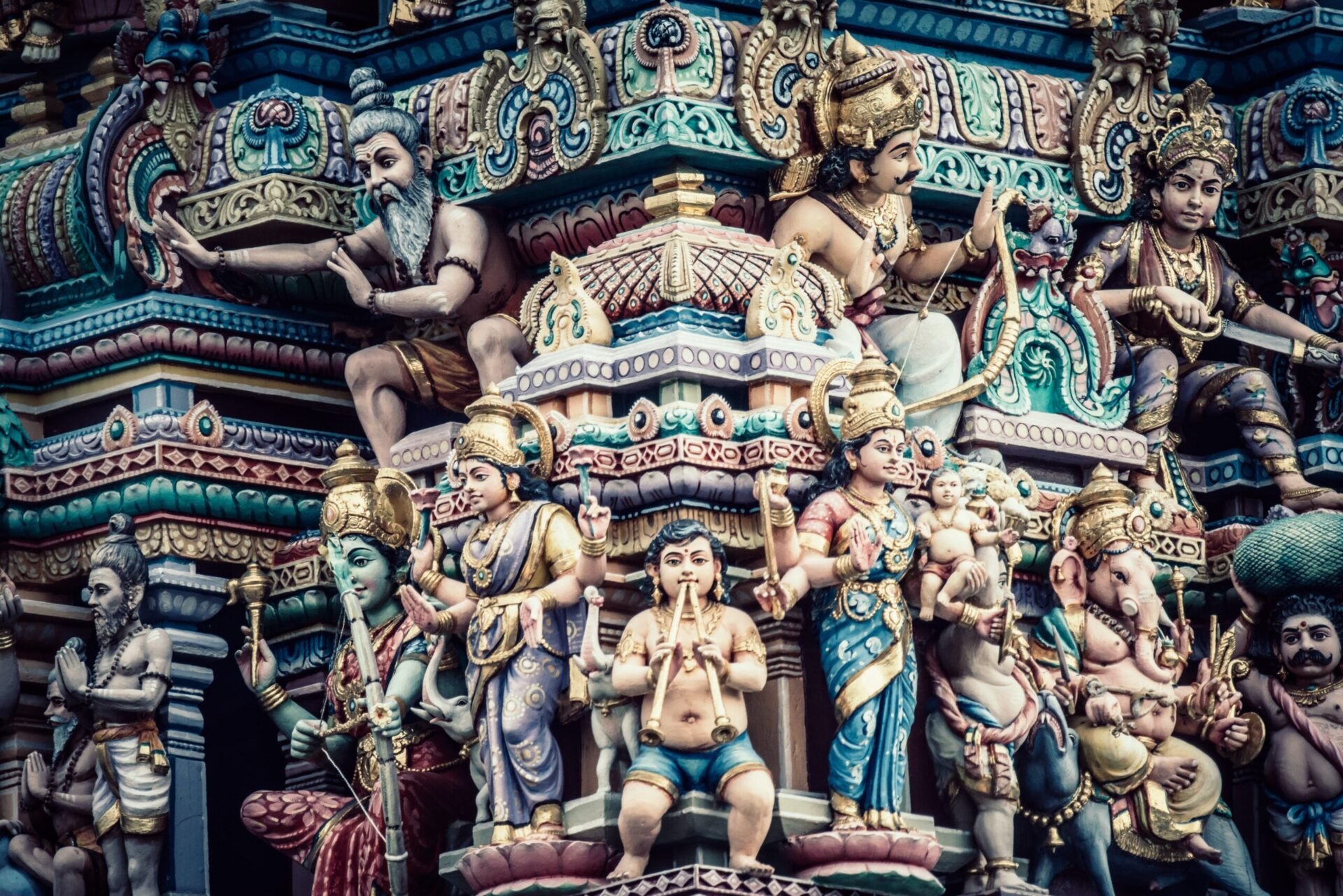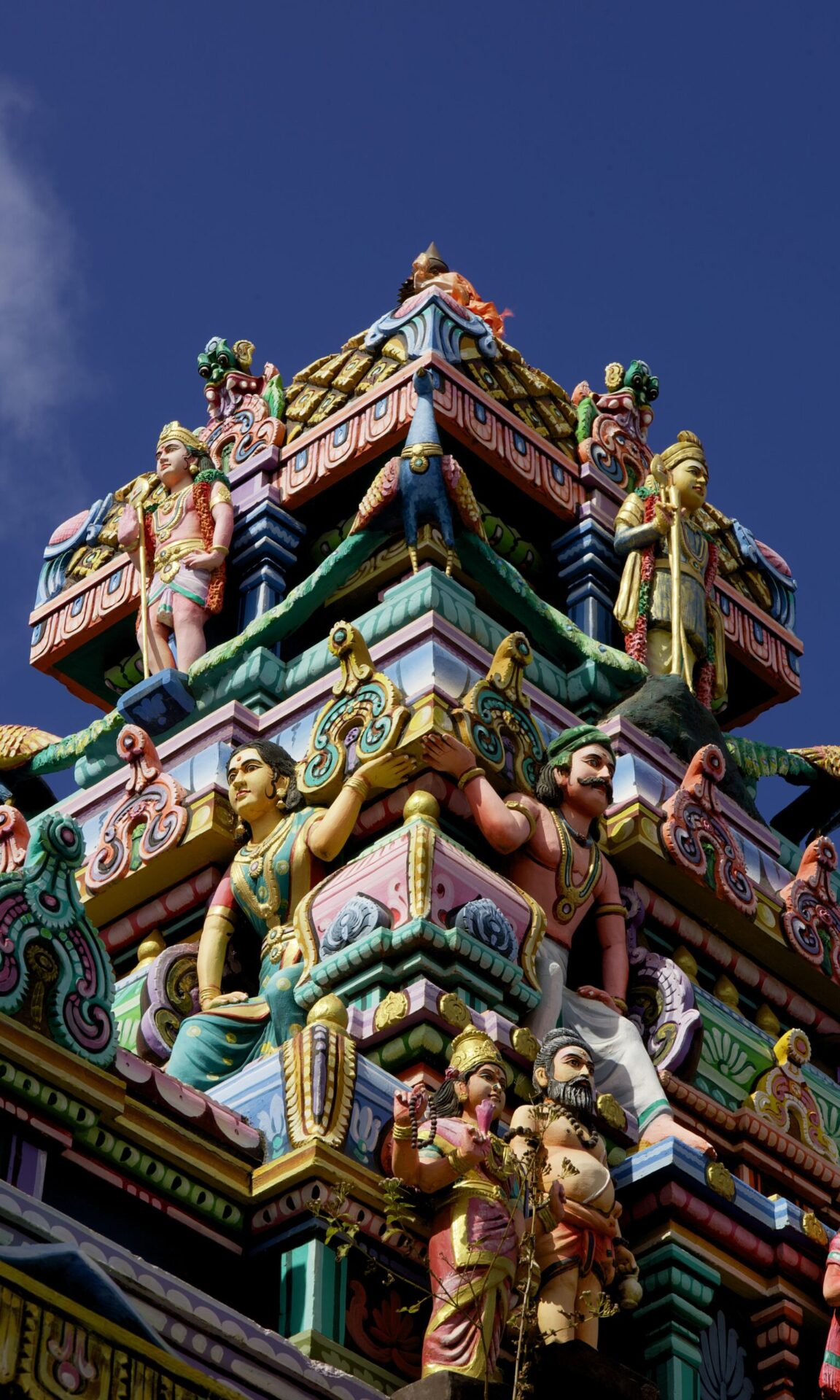In the diverse world of Hinduism, one may ponder about the deities revered by its followers. With its rich tapestry of beliefs and practices, Hindus worship a multitude of gods and goddesses, each representing different aspects of the divine. From the powerful creator Brahma to the benevolent goddess Lakshmi, the article “Who Do Hindus Worship?” delves into the fascinating world of Hindu deities, shedding light on the diverse manifestations of the divine that are revered by millions across the globe.
Table of Contents
Understanding Hinduism’s Polytheistic Tradition
Hinduism, one of the oldest religions in the world, is known for its rich mythology and the belief in multiple deities. This polytheistic tradition plays a significant role in the spiritual and cultural practices of Hindus. The concept of polytheism in Hinduism is the belief in multiple gods and goddesses, each with their own unique qualities and powers. These deities are worshipped and revered by millions of Hindus worldwide, who seek their blessings, guidance, and protection in various aspects of life.
The concept of polytheism in Hinduism
Polytheism, as understood in Hinduism, is the belief in many gods and goddesses who are worshipped as divine beings. Unlike some other religions that emphasize the existence of a single omnipotent deity, Hinduism recognizes the presence of numerous gods with different qualities and functions. These deities are seen as manifestations of the ultimate reality or the divine energy that permeates the universe. They represent various aspects of existence, such as creation, preservation, destruction, fertility, wisdom, and compassion.
Manifestations of divine powers in the Hindu tradition
Hinduism encompasses a vast pantheon of gods and goddesses, with each deity symbolizing a different aspect of the divine. From the triumvirate of Brahma, Vishnu, and Shiva to the various forms of goddess worshipped as Devi or Shakti, the Hindu tradition offers a multitude of divine manifestations to worship and seek guidance from. Noteworthy among these deities are Brahma, Vishnu, Shiva, Devi, Lord Ganesha, Lord Krishna, and Lord Rama.
Brahma: The Creator
In Hindu mythology, Brahma holds the role of the creator of the universe. He is revered as the one who brings forth life and forms the foundation of all existence. Despite his status as the creator, Brahma is not as widely worshipped as the other gods in the Hindu pantheon. He is often depicted with four heads, symbolizing his wisdom and ability to oversee the four directions. His consort is Saraswati, the goddess of knowledge and arts.
Worship of Brahma is relatively uncommon, but there are a few temples dedicated to him. One such temple is the Brahma Temple in Pushkar, Rajasthan, considered one of the holiest places in India. Devotees who visit the temple seek blessings for creativity, knowledge, and spiritual growth. The festival of Kartik Purnima, which typically falls in November, is celebrated with great fervor in Pushkar, attracting pilgrims and devotees from all over the country.

Vishnu: The Preserver
Vishnu, the second deity of the Hindu triumvirate, is regarded as the preserver and protector of the universe. His role is to maintain cosmic order and restore balance whenever evil threatens to overpower righteousness. Vishnu is worshipped in various forms known as avatars, the most famous of which are Lord Krishna and Lord Rama.
Throughout Hindu mythology, Vishnu is believed to have taken ten avatars or incarnations to restore order in the world. These avatars include Matsya (the fish), Kurma (the turtle), Varaha (the boar), Narasimha (the half-man, half-lion), Vamana (the dwarf), Parashurama (the warrior with an axe), Rama (the prince of Ayodhya), Krishna (the divine cowherd), Buddha (the enlightened one), and Kalki (the future avatar).
Devotion and worship of Lord Vishnu are widespread among Hindus. Temples dedicated to Vishnu, such as the famous Tirupati Balaji Temple in Andhra Pradesh and the Jagannath Temple in Puri, Odisha, attract millions of devotees annually. Festivals like Janmashtami, which commemorates the birth of Lord Krishna, and Rama Navami, which celebrates the birth of Lord Rama, are celebrated with great enthusiasm and joy across the country.
Shiva: The Destroyer
In Hindu cosmology, Lord Shiva is the god associated with destruction and transformation. Despite his association with destruction, Shiva is not regarded as an evil deity but rather as a force that paves the way for new beginnings and growth. He is often depicted as meditating in the Himalayas, surrounded by serpents and covered in ashes, symbolizing his transcendence of the material world.
Worship of Lord Shiva is prevalent among Hindus, and his devotees, known as Shaivas, engage in various rituals and practices to seek his blessings. The most common form of worship is through the use of lingam, a symbol representing Shiva’s divine energy. Devotees visit temples dedicated to Lord Shiva, such as the Kedarnath Temple in Uttarakhand and the Brihadeeswarar Temple in Thanjavur, Tamil Nadu, to offer prayers and perform rituals.
One of the most significant festivals dedicated to Lord Shiva is Maha Shivaratri, which honors his marriage to the goddess Parvati. Devotees observe a night-long vigil, offer prayers, and engage in meditation to seek spiritual enlightenment and liberation. Maha Shivaratri is celebrated with immense enthusiasm throughout India, with devotees coming together to chant hymns and perform traditional dances in devotion to Lord Shiva.

Devi: The Goddess or Shakti
Goddess worship occupies a central position in Hinduism, with the feminine energy, known as Devi or Shakti, considered the ultimate power that drives the universe. Devi is worshipped in multiple forms, each representing a unique aspect of femininity, strength, and creativity. Some notable forms of Devi include Durga, Kali, Lakshmi, Saraswati, and Parvati.
Understanding the primacy of Goddess worship is essential to comprehend the core of Hindu beliefs. Devotees perform various rituals to honor the goddess and seek her blessings in areas such as protection, prosperity, knowledge, and spiritual growth. Temples dedicated to different forms of Devi, such as the Kamakhya Temple in Guwahati, Assam, and the Meenakshi Temple in Madurai, Tamil Nadu, hold immense significance for devotees.
Festivals celebrating Devi, such as Navaratri and Durga Puja, are observed with great enthusiasm and devotion across India. These festivals involve elaborate rituals, cultural performances, and vibrant processions to honor the goddess and invoke her divine presence. Devotees offer prayers, sing hymns, and participate in devotional dances to express their reverence and seek the blessings of Devi.
Lord Ganesha: Remover of Obstacles
Lord Ganesha, the elephant-headed deity, is one of the most beloved and revered gods in Hinduism. He is worshipped as the remover of obstacles and the god of new beginnings, wisdom, and success. Lord Ganesha is often depicted with a rotund belly, symbolizing his ability to consume all obstacles and challenges.
Mythologically, Lord Ganesha is believed to have been created by Goddess Parvati and endowed with the task of guarding her privacy. His form, with an elephant’s head, represents his intelligence and ability to make wise decisions. His worship typically begins before the commencement of any auspicious event or venture to seek his blessings and ensure a smooth journey.
Devotees worship Lord Ganesha by offering prayers, chanting mantras, and performing aarti (a ritual of waving lamps) to show reverence and seek his blessings. The Ganesh Chaturthi festival, which celebrates Lord Ganesha’s birth, is one of the most celebrated events in India. Elaborate statues of Lord Ganesha are created, worshipped for several days, and then immersed in bodies of water, symbolizing his return to Mount Kailash.
The influence of Ganesha worship extends beyond religious practices and has permeated various aspects of art and culture. Ganesha is widely depicted in paintings, sculptures, and other forms of artistic expression, becoming a recognizable symbol worldwide. His presence is believed to bring good fortune, prosperity, and success, making him an integral part of Hindu mythology and daily life.

Lord Krishna and Rama: Popular Avatars of Vishnu
Lord Krishna and Lord Rama are two of the most revered avatars of Lord Vishnu. Both deities hold immense significance in Hinduism and are known for their heroic deeds, moral teachings, and divine love.
Lord Krishna, often depicted as a divine cowherd with a flute in his hand, embodies love, devotion, and bliss. The stories and myths surrounding Krishna’s childhood, his interactions with the gopis (cowherd maidens), and his role as the charioteer in the Bhagavad Gita are deeply cherished by devotees. The worship of Lord Krishna involves singing devotional songs, performing dances known as Raas Lila, and narrating his enchanting stories.
Lord Rama, considered the epitome of righteousness and the ideal king, is worshipped as a symbol of virtue, integrity, and honor. The epic Ramayana narrates the life, adventures, and battles of Lord Rama as he rescues his wife, Sita, from the demon king Ravana. Devotees honor Lord Rama by reciting the Ramayana, participating in processions known as Rathyatras, and performing aarti while singing devotional hymns.
Temples dedicated to Lord Krishna and Lord Rama are spread across the country, with notable examples including the ISKCON Temple in Vrindavan and the Ranganathaswamy Temple in Srirangam. Festivals like Janmashtami, which celebrates Lord Krishna’s birth, and Diwali, which commemorates Lord Rama’s return to Ayodhya after defeating Ravana, are celebrated with great enthusiasm by devotees.
Lesser-Known Deities in the Hindu Pantheon
While Brahma, Vishnu, Shiva, Devi, Ganesha, Krishna, and Rama hold significant positions in the Hindu pantheon, Hinduism acknowledges a vast range of lesser-known gods and goddesses. These deities, known as minor or regional deities, embody local customs, traditions, and beliefs. Worship of these lesser-known deities reflects the diversity and pluralistic nature of Hinduism.
The worship of lesser-known deities varies from region to region and often exhibits unique customs and traditions. For example, in the state of Maharashtra, the worship of Vithoba, a form of Lord Krishna, is highly prevalent. The annual pilgrimage to the Pandharpur temple, dedicated to Vithoba, attracts millions of devotees who undertake a 21-day journey to seek his blessings. Similarly, the worship of Mariamman, the goddess of rain and fertility, is widespread in the southern states of Tamil Nadu and Karnataka.
The diversity of lesser-known deities highlights the regional specificity of deity worship in Hinduism. It reflects the local customs, practices, and legends that shape religious beliefs and rituals. These regional deities play a vital role in the everyday lives of Hindus, offering a personal and localized connection to the divine.
Concept of Ishta Devata (Personal God)
In Hinduism, the concept of Ishta Devata refers to the personal deity or god that an individual resonates with the most. It is believed that every individual has a specific Ishta Devata who becomes their chosen deity for spiritual worship and devotion. The choice of Ishta Devata is deeply personal and can depend on various factors, including family traditions, personal experiences, cultural influences, and individual spiritual inclinations.
The concept of Ishta Devata recognizes that the divine is vast and multifaceted, allowing individuals to connect with and seek spiritual solace from a deity that reflects their personal journey and aspirations. This personalized form of worship enhances the devotee’s spiritual growth and provides a sense of guidance, protection, and connection to the divine.
The influence of Ishta Devata reaches beyond formal worship and permeates various aspects of an individual’s spirituality. It influences their daily rituals, prayers, and meditation practices, allowing for a more intimate and meaningful connection with the divine. The devotion and love for one’s Ishta Devata become a source of inspiration, strength, and solace throughout life’s journey.
Ancestral Worship and Reverence for Gurus
In Hinduism, the importance of ancestors and spiritual teachers, known as gurus, is deeply rooted in the religious and cultural fabric of the community. Ancestral worship, known as Pitru Puja, involves honoring and expressing gratitude to one’s ancestors for their guidance and blessings. Hindus believe that their ancestors continue to exist in a spiritual realm and can influence the lives of their descendants.
Ancestral worship typically involves performing rituals and ceremonies to offer prayers, food, and water to the departed souls. These rituals vary across different regions and communities but often include the lighting of sacred lamps, recitation of mantras, and the pouring of water into a vessel symbolizing the ancestors’ presence. The worship of ancestors is believed to bring blessings, protection, and peace to the family.
Equally important in Hindu worship is the reverence for gurus and spiritual teachers. Gurus are regarded as enlightened beings who guide individuals on the path of self-realization and spiritual awakening. They impart divine knowledge, teach spiritual practices, and serve as a source of inspiration and guidance.
Hindus pay homage to their gurus through various rituals and practices, including seeking their blessings, undertaking discipleship, and following their teachings. The relationship between a guru and a disciple is considered sacred and profound, fostering spiritual growth and a deeper connection with the divine.
Rituals and practices associated with ancestor and guru worship are deeply ingrained in Hindu culture. They serve as a reminder of the continuity of life and the interconnectedness of generations. These practices bring a sense of unity, reverence, and gratitude, promoting spiritual well-being and communal harmony within the Hindu community.
In conclusion, Hinduism’s polytheistic tradition encompasses an extensive pantheon of gods and goddesses, each representing different aspects of the divine. Brahma, Vishnu, Shiva, Devi, Lord Ganesha, Lord Krishna, and Lord Rama hold significant positions within Hindu worship. Lesser-known deities and the concept of Ishta Devata reflect the diversity and personal nature of religious beliefs. Ancestral worship and reverence for gurus highlight the importance of acknowledging the past and seeking spiritual guidance for a balanced and fulfilling life. Understanding and embracing these aspects of Hinduism foster a deeper appreciation for the rich tapestry of beliefs and practices within this ancient religion.